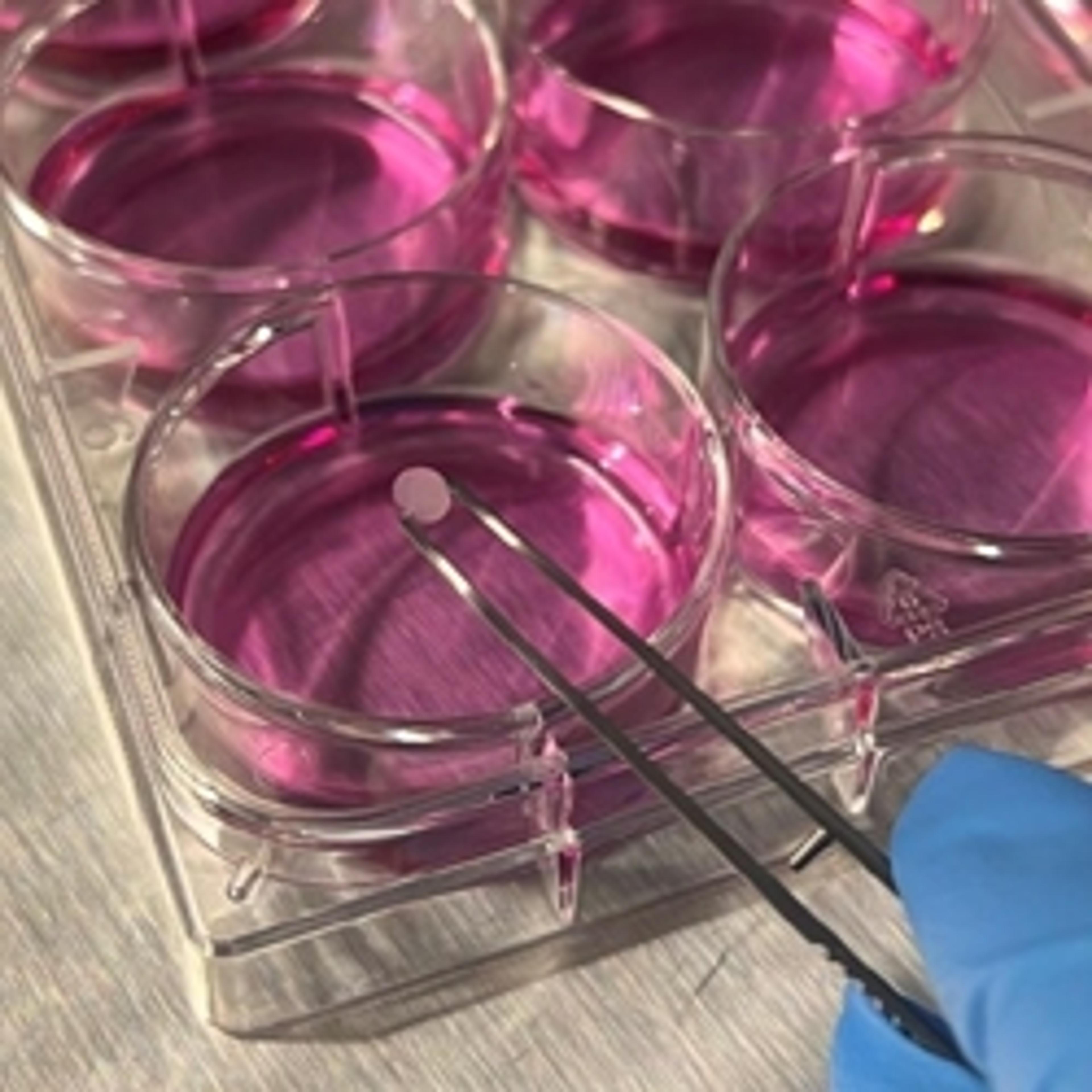StemCultures introduces FGF2 DISC™ Devices for precise control of FGF2 concentration during cell culture
Controlled levels of FGF2 reduce spontaneous differentiation, enhance pluripotency, and improve the differentiation efficiency of stem cell cultures
20 Jan 2022
StemCultures, a life sciences company developing novel reagents that improve the quality and efficiency of cell growth and differentiation in culture, has announced the launch of FGF2 DISC™ devices which consist of biodegradable StemBeads® loaded with recombinant human fibroblast growth factor 2 (FGF2) embedded in an inert non-biodegradable, biocompatible hydrogel device.
Placed directly into the cell culture vessel, the new DISC™ devices enable precise control of the concentration of FGF2 throughout the duration of culture, creating a more physiologic environment that improves cell growth. StemBeads® contained within the DISC™ device release growth factor at a controlled rate, minimizing variations in concentration and reducing the resulting stress on cells. DISC™ devices do not degrade and can be easily added or removed from culture vessels.
The FGF2 DISC™ devices are particularly useful in stem cell and induced pluripotent stem cell (iPSC) cultures where they reduce spontaneous differentiation, enhance pluripotency, and guide preferential differentiation. FGF2 DISC™ devices are fully compatible with different types of stem cell media.
“The ability to produce large quantities of homogeneous cells for research or therapeutic development requires precise orchestration of culture conditions, including the concentration and timing of growth factors that regulate proliferation and differentiation,” said Sally Temple, Ph.D., President of StemCultures. “Optimizing protein levels to drive preferential proliferation and differentiation can be time-consuming and labor intensive. When added to a culture vessel, growth factor concentrations rapidly peak and then decline, which alters the pattern of cell signaling, leading to the cell population becoming increasingly heterogeneous. The use of FGF2 DISC™ devices to deliver a consistent concentration is key to higher quality cultures and higher quality, more consistent cells.”
In addition to enhancing control over culture conditions, the use of DISC™ devices to deliver a steady concentration of FGF2 reduces the need for media changes. Pluripotent stem cell cultures typically
require daily feeding or feeding multiple times per week; the use of DISC™ devices reduces the number of feeds to once or twice per week. This results in a significant reduction in labor requirements and cost, especially for large-scale production. Fewer media changes also minimize the risk of contamination created by handling and opening cell culture vessels.
StemCultures is developing additional DISC™ devices with StemBeads® releasing other growth factors and cytokines as well as devices containing combinations of StemBeads® releasing different growth factors at specific concentrations. StemCultures develops custom StemBeads® and DISC™ devices for specialized uses upon request.

